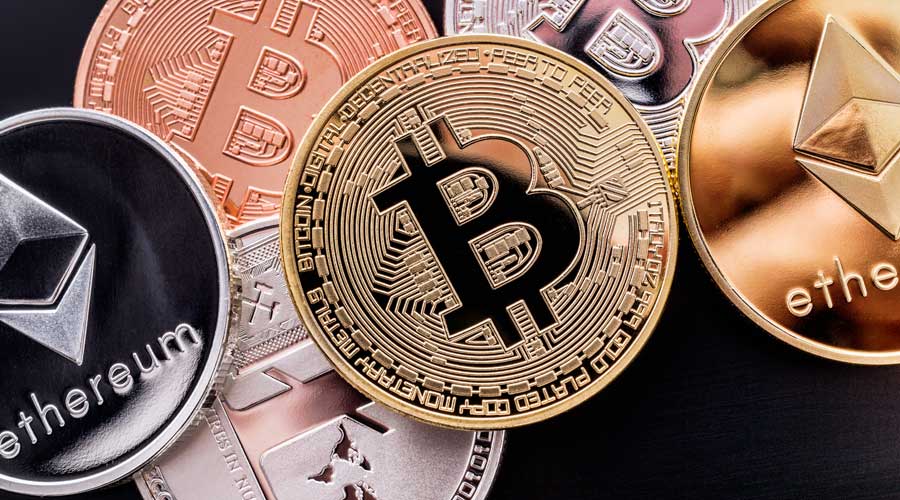A meeting on crypto currency by the parliamentary standing committee on finance on Monday appeared to veer towards the need to regulate the digital currencies rather than ban them outright.
With the winter session of Parliament less than a fortnight away, and a crypto-currency bill on the cards, views on digital currencies are yet to be firmed up, raising the possibility that the bill will lay out a broad regulatory framework with the policymakers fleshing out the specifics in the rules that will underlie the legislation.
An internal RBI report on crypto currencies will be ready only next month even as RBI governor Shaktikanta Das has reiterated his opposition to them.
Sources said the proposed bill would focus on investor protection as crypto currencies come under a complex asset class category. Once cleared by the Union cabinet, the government plans to introduce the bill in the first week of the winter session.
The parliamentary panel, chaired by BJP leader Jayant Sinha, on Monday discussed the pros and cons of crypto finance with various stakeholders, and several members were in favour of regulating crypto currency exchanges rather than imposing an outright ban, a PTI report said.
At present, there are neither specific regulations nor an outright ban on the use of crypto currencies in India.
Representatives of crypto exchanges, block chain and Crypto Assets Council (BACC), industry bodies as well as academicians and other stakeholders submitted their views before the panel, whose meeting also happened days after Prime Minister Narendra Modi held discussions with senior officials from various ministries and the RBI on crypto currencies.
This is the first meeting on the subject that was convened by the Parliamentary Standing Committee on Finance.
Some Congress members in the panel said there were significant challenges in banning crypto currencies.
The broad view of the panel was that a Chinese wall should be put in place on crypto currencies’ fungibility in the real world and its interface with the real world should be regulated, they added.
Currency is a domain of the sovereign whereby its value is fixed in an assured manner and crypto currency is a computer programme managed in distributed format on internet. Its value is only discovered by a buyer and user on an exchange which itself is illegal, they noted.
One of the members even wondered how crypto currencies are going to be regulated when even regulating the internet remains difficult.
Members also expressed concerns about the possibility of crypto currencies being used for financing terror activities. Sources said the security of investors’ money was the most serious concern expressed in the meeting. Some members expressed concern over full-page crypto ads.
The panel is likely to call on government officials and other stakeholders soon to understand their perspective and expressed the hope that the bill when brought in Parliament would be referred to the standing committee and not rushed through.
The finance ministry’s revenue department is of the view that if there is gain or income from crypto, it should be taxed according to capital gains rules. Similarly, if there is service involved in the transaction, then the goods and services tax needs to be levied.
The government held off on plans to introduce The Cryptocurrency and Regulation of Official Digital Currency Bill, 2021 in the budget session as it continued discussions with stakeholders.
The draft law proposed to prohibit all private cryptocurrencies and laid down the regulatory framework for the launch of an “official digital currency”. However, the view on outright prohibition seems to have evolved since then.
The Supreme Court in early March 2020 had nullified the RBI circular banning cryptocurrencies. Following this on February 5, 2021, the central bank had instituted an internal panel to recommend a model of the central bank’s digital currency. Earlier in March, the Supreme Court had set aside an RBI circular of April 6, 2018, prohibiting banks and entities regulated by it from providing services in relation to virtual currencies.
At the Prime Minister’s meeting on Saturday, concerns were raised over money laundering terror financing using crypto currencies.










